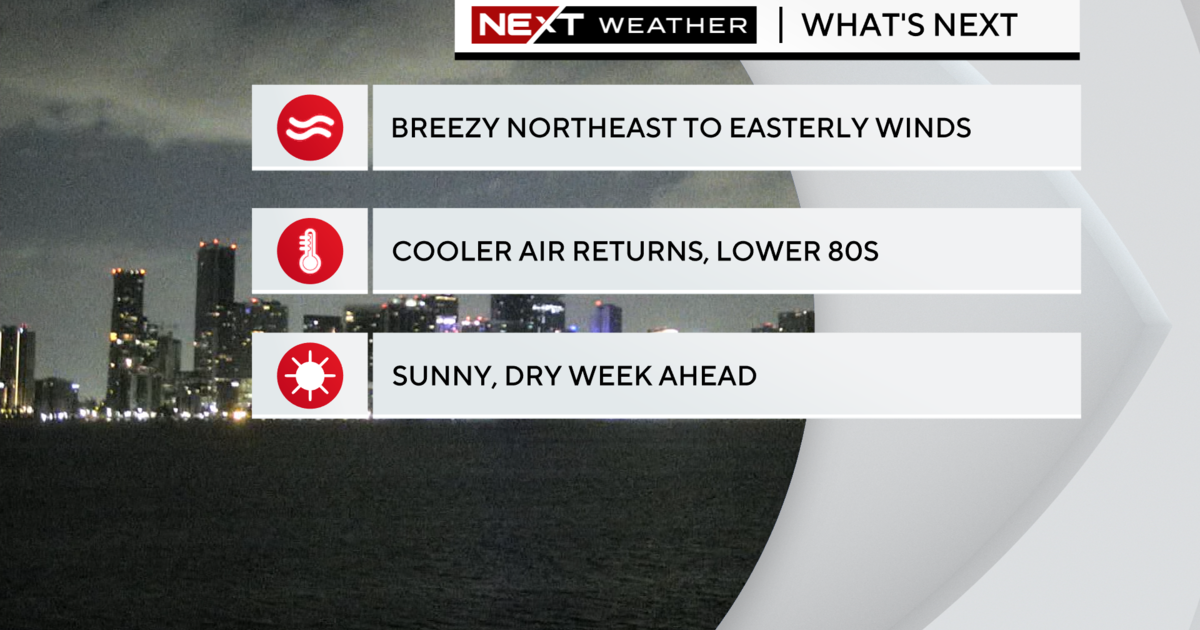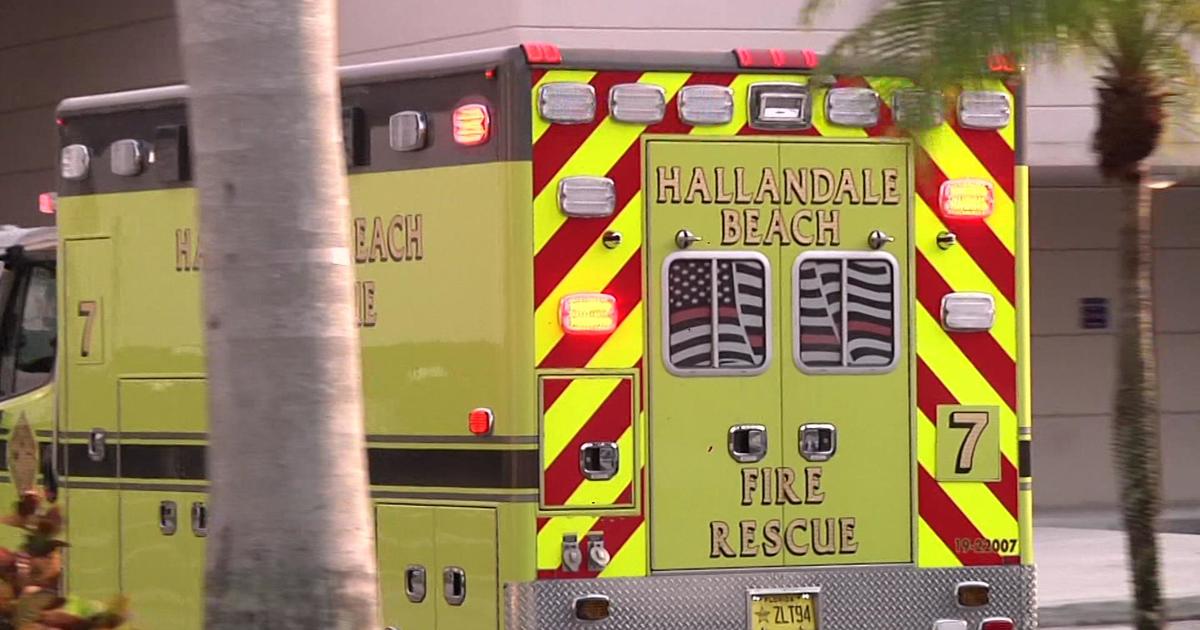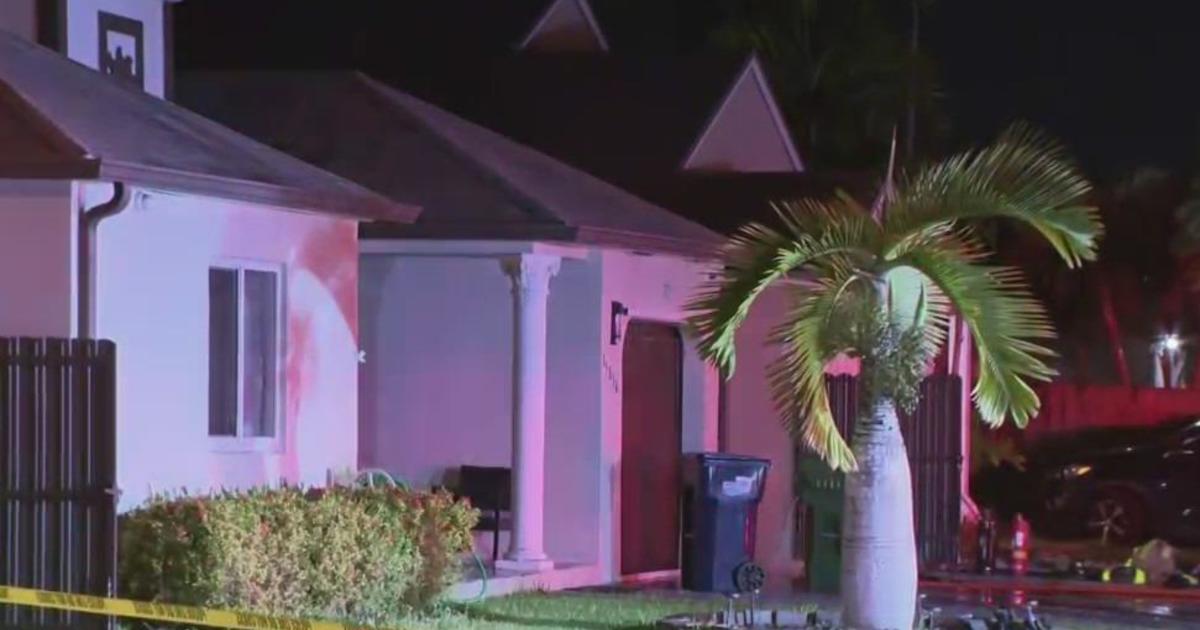Marine Experts "Cautiously Optimistic" As Whales Head Toward Deeper Waters
MIAMI (CBSMiami) – The fate for the remaining live pilot whales seemed bleak Wednesday as the miles between them and their home-range of deeper waters had shallows and sand flats in-between—making it difficult to navigate. However, on Thursday, experts' optimism boosted as 35 of the whales seem to be headed in the right direction.
"Typically that doesn't happen. They'll turn around and go back to the beach. And so all of us were expecting to see the pod still there this morning but they were gone," said Dawn Buckler, a volunteer with Everglades National Park.
Another whale was found dead Thursday bringing the original number of 10 carcasses up to 11 of the 51 stranded short-finned pilot whales stranded about a mile off the shoreline of Highland Beach in Monroe County.
Experts are "cautiously optimistic" as 35 of the deep-sea mammals were headed northwest, being followed by a Coast Guard Cutter until night fall. The caution remains as this species is known to re-strand itself, according to Blair Mase, the Southeast Marine Mammal Stranding Coordinator from NOAA fisheries.
"A lot more encouraged than I was yesterday," said Mase, but did add that there was still no guarantee that the whales will move offshore.
Mase said that if the whales continue heading to deeper water on Friday, they will stop efforts.
"They seem to be diving well and breathing well which are really great things and they are headed in the right direction," said Liz Strafford of NOAA.
A total of 15 vessels and 35 people, as per Mase, went out Thursday continue efforts to herd the whales.
Herding with boats and loud noises is just one of the efforts volunteers are attempting Thursday for the dozens of pilot whales stranded in the remote location in Everglades National Park.
On Thursday, the U.S. Coast Guard joined NOAA, Florida Fish and Wildlife Conservation Commission, the Marine Animal Rescue Society out of Miami, and Marine Mammal Conservancy, along with the aid of the National Park Service, in assisting to try to save the stranded whales.
NOAA received a call late afternoon Tuesday about stranded whales. Due to their remote location, experts were not able to reach the whales until Wednesday morning.
Upon arrival, experts found a total of 51 short-finned pilot whales, six of them dead, stranded off the Highland Beach area of Everglades National Park. Vets on scene had to euthanize four of the stranded whales Wednesday.
The free-swimming whales were in 2-4 feet of water and about 20 miles away from their natural deep-sea habitat.
A total of 15 vessels and 35 people, as per Blair Mase the Southeast Marine Mammal Stranding Coordinator from NOAA fisheries, went out Thursday to try to help herd, asses the live and take samples from the whale carcasses.
Mase, on a conference call, said that while all the whales have not been located, two separate pods of about 15-20 were spotted about 5-10 miles north of where they were swimming yesterday—in about 12 feet water in Seminole Pointe in Monroe County.
"Milling close to shore is not a part of their regular behavior. They're deep sea animals, deep divers, they shouldn't be so close to shore, that's part of how we I know that something is very wrong when we see them this close to shore," said Liz Stratton with NOAA.
Wildlife officials are now trying to figure out what may have caused them to come so close to shore, some beaching themselves.
"There are a lot of theories. Animals can be sick and they come up on the beach. Sometimes with pilot whales when one or more animals is ill the whole group will come up. So sometimes you have to distinguish which is ill," said Stratton.
This is not the first mass stranding here. Two years ago, 14 pilot whales beached themselves near Key West. Only a few were able to make it back into the wild.



